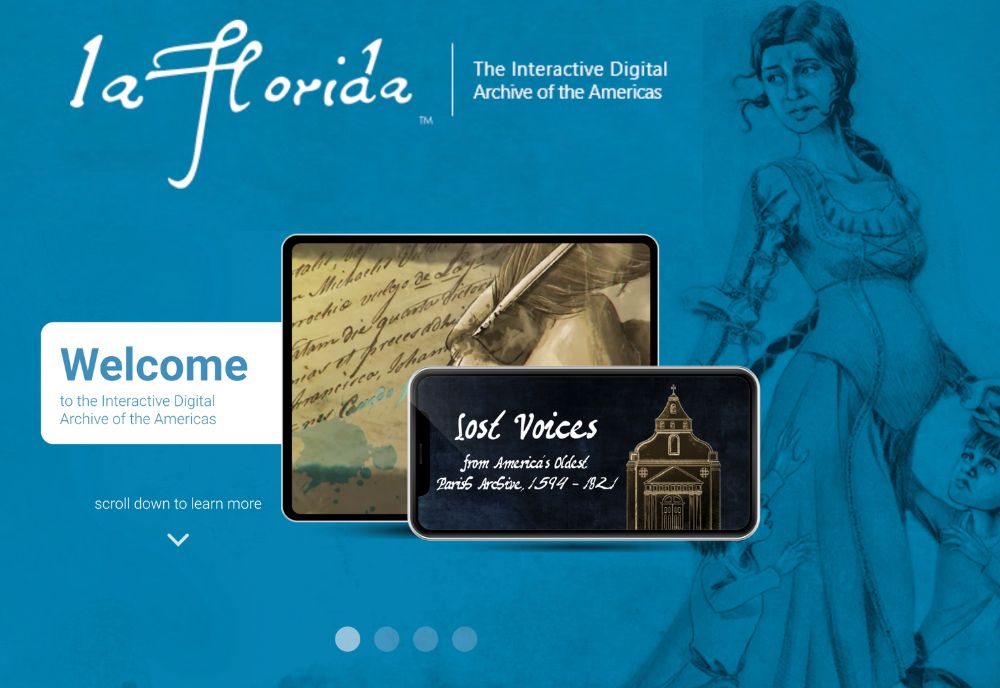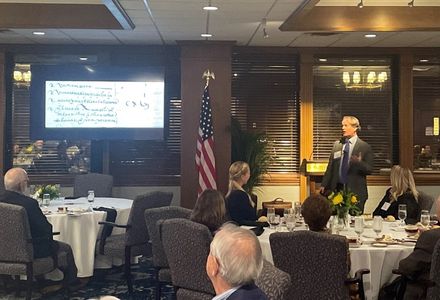
Dr. J. Michael Francis speaking on the “Lost Voices from St. Augustine’s Parish Archive, 1594-1821” during February 2023’s Trail Blazers discussion in Tampa, Fla. (Photo by Alexis Brickner)
La Florida: The Interactive Digital Archive of the Americas is an open-access digital history project designed to make Florida’s colonial history more accessible by combining historical research and cutting-edge technology.
“This project really began with an effort to bring this period of American history to a much broader audience,” said Dr. J. Michael Francis, USF College of Arts and Sciences professor in the Department of History and Hough Family Chair of Florida Studies.
Early Spanish records from Florida’s colonial period are handwritten, according to Francis. Many–like the images seen below–are almost indecipherable.
“We wanted to share that material with the general public and give them the opportunity to work with the original documents,” he said.
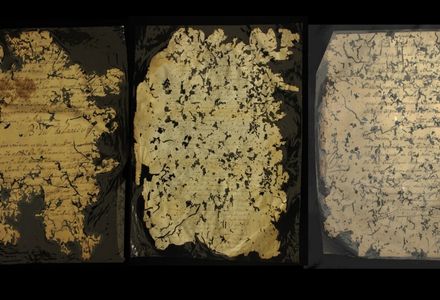
Three pages from the Diocesan of St. Augustine. (Photo courtesy of Rachel Sanderson)
To accomplish that goal, he and USF alumna Rachel Sanderson, associate director of La Florida, worked with a tech team from Spain to design and build a digital portal that would provide unprecedented access to some of the oldest colonial records in the U.S.
Francis said the La Florida database started by identifying more than 4,000 so-called “Spanish conquistadors.”
“However, we wanted to expand that to include the thousands of people of African descent, Native Americans, women, children; people who typically have not had a voice in the historical records,” Francis said.
In 2020, they began to work with St. Augustine’s colonial parish registers—more than 8,000 handwritten pages of baptism, confirmation, marriage, death, and burial records. With documents dating back to 1594, the Diocese of St. Augustine houses the oldest surviving parish archive anywhere in the U.S., according to Francis.
This kickstarted a three-year project, funded by the National Archives, the Hough Family Foundation, the Lastinger Family Foundation, and the Frank E. Duckwall Foundation, that culminated in the Lost Voices archive.
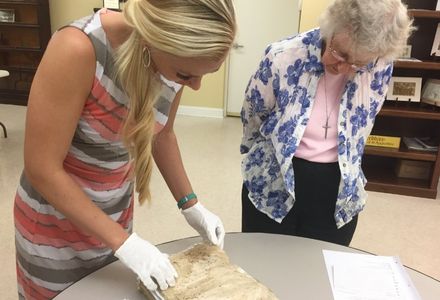
La Florida Associate Director Rachel Sanderson with archivist Sister Catherine Bitzer examining the collection’s 16th-century records. (Photo courtesy of Rachel Sanderson)
The archive provides insight into the daily lives and relationships of the multi-ethnic populations that comprised St. Augustine, Fla. from the sixteenth to the nineteenth centuries.
“Sharing this type of history with the public fosters curiosity, curiosity inspires questions, questions fuel critical thinking,” Sanderson said. “I’d love to think that someone saw a person’s profile or a Florida story at laflorida.org and thought to themselves, ‘No way, I’m going to look into this.’”
And their work is not going unnoticed.
In February 2023, the La Florida initiative received an “Honorable Mention” recognition from the National Council on Public History, a nonprofit membership association that “inspires public engagement with the past and serves the needs of practitioners in putting history to work in the world.”
Members of the NCPH include historical consultants, museum professionals, historians, professors, archivists, curators, policy advisors and more.
“To be honored by a prestigious organization that recognizes the value and importance of bringing research into the public sphere and making it available to a global audience—anyone with internet access—was such a pleasant surprise and delight for everyone who worked on this project,” Francis said. “It is a recognition that work that we are doing does have a significance outside the state of Florida.”
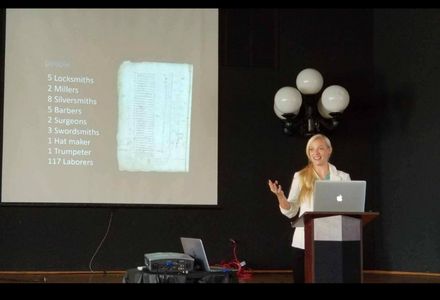
La Florida Associate Director Rachel Sanderson presenting to educators at the annual conference for the Florida Council for History Education. (Photo courtesy of Rachel Sanderson)
Sanderson said recognition from NCPH is an acknowledgment of Florida’s importance within national and international historical discussions.
“It shows that digital history projects can be beautiful and intuitive while maintaining the nuances of rigorous research,” she said. “Digital history projects are built upon two fundamental pillars: cutting-edge technology and careful historical research. Because tech folks aren’t historians and historians are tech folks, one of these elements usually speaks louder than the other in the final product. I am grateful that – through laughs and tears – we were able to work together and, I believe, both components shine through equally at laflorida.org.”
The work of the La Florida project will be celebrated during the 2023 NCPH Annual Meeting in Atlanta Georgia to be held in April. For more information about this project, follow La Florida on Facebook and Instagram.
